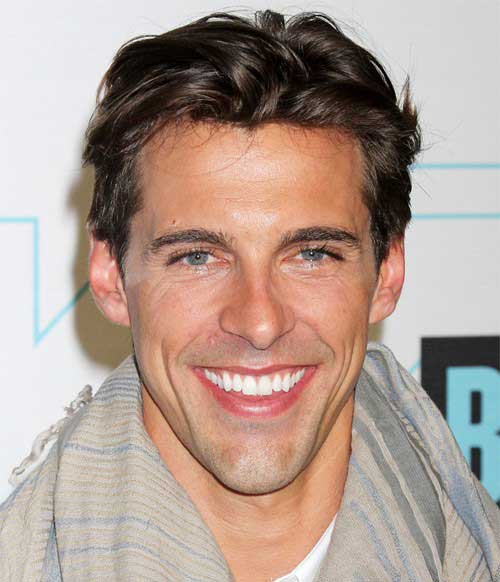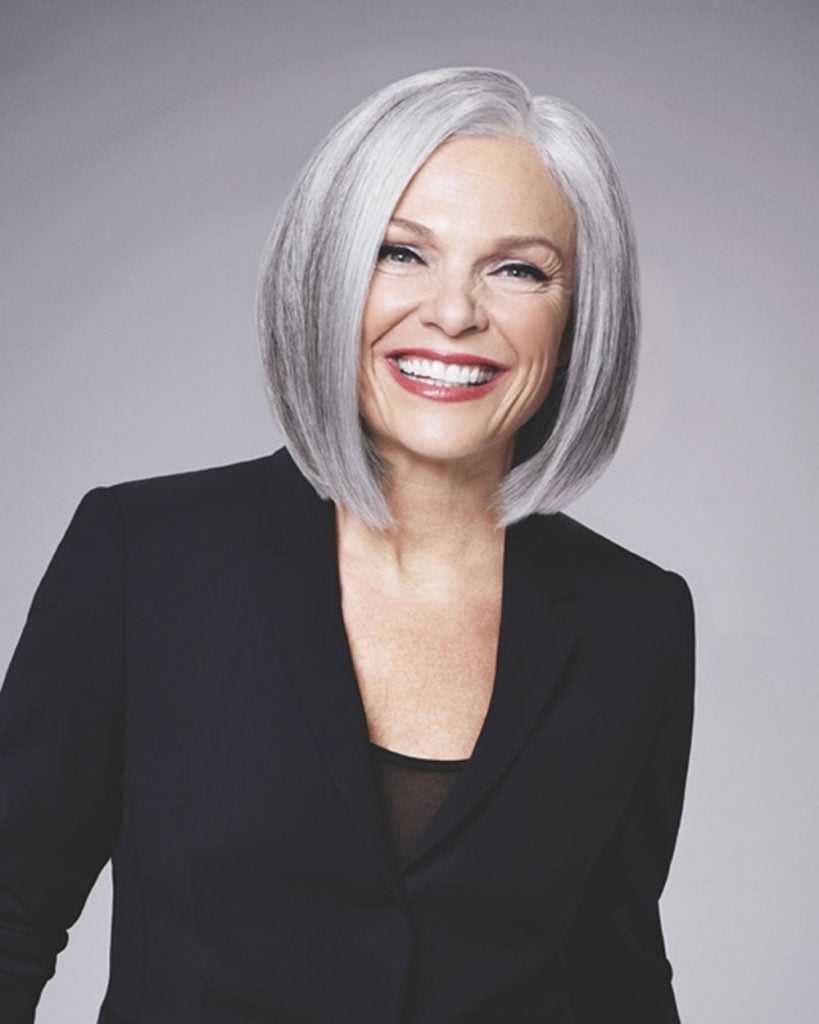With menopause, the ovaries cease producing estrogen, the female hormone. Hair loss during the menopausal transition can be just as dramatic as menopausal hair loss.
Does Body Hair Stop Growing During Menopause, Estrogen and progesterone keep the hair in the growing phase, making it grow faster and stay on the head longer. Visibly minimizes hair regrowth reduces need for frequent hair removal

This period of time can cause hair loss in some women. You may have observed your hair thinning out or falling as you take a bath or comb your hair. Hair all over the body can change in texture and quantity during menopause. Hair can stop growing or grow slowly for a variety of reasons including age, genetics, hormones, or stress.
If you’re exercising, sleeping and eating well and you’re still experiencing hair loss, there are a few things you can try to boost the appearance of your mane, such as hair extensions, micro needling or even a hair transplant.
An increase in facial/body hair is called hypertrichosis. These hormones help hair grow faster and stay on the head for longer periods of time. Hair may also fall out in large clumps during brushing and showering. How do i prevent growing facial hair in menopause? Does pubic hair cease growing once it’s reached a certain length?all hair grows at a contstant rate, but eventually falls out. 1) the hair on your head.
 Source: pinterest.com
Source: pinterest.com
Most women find that their hair loses volume and length around menopause. Some other diseases can cause hair to stop growing, although most of this hair loss is not specific to the legs. These hormones help hair grow faster and stay on the head for longer periods of time. As we age, our natural levels of estrogen will reduce, and.
 Source: betterafter50.com
Source: betterafter50.com
Below are seven ways to alleviate hair loss during menopause: Research suggests that hair loss during menopause is the result of a hormonal imbalance. You may also find that your hair breaks more easily after menopause. Improved nutrition provides a woman with the vitamins, minerals and other nutrients needed for healthy hair growth 1. If you’re exercising, sleeping and eating.
 Source: pinterest.com
Source: pinterest.com
Visibly minimizes hair regrowth reduces need for frequent hair removal During menopause, the ovaries gradually produce less estrogen and progesterone, medlineplus explains 2. Why does pubic hair stop growing at a certain length? With menopause, the ovaries cease producing estrogen, the female hormone. For example, thyroid disorders or severe malnutrition caused by illness or eating disorders can cause hair loss.
 Source: lewigs.com
Source: lewigs.com
Specifically, it’s related to a lowered production of estrogen and progesterone. These hormones help hair grow faster and stay on the head for longer periods of time. Visibly minimizes hair regrowth reduces need for frequent hair removal The two are both related to the same changes in hormone levels. During menopause, the ovaries gradually produce less estrogen and progesterone, medlineplus.
 Source: pinterest.com
Source: pinterest.com
This hair growth and loss is entirely controlled by the hormones in your body. This leads to many changes in the body including both increased and decreased hair growth. 1) the hair on your head. The two are both related to the same changes in hormone levels. In this week�s edition of beauty myths, we enlisted elizabeth cunnane phillips, a.
 Source: hairlossreversed.com
Source: hairlossreversed.com
For some women, the increased effects of the body�s androgens can result in darker, thicker and wiry body hair on the pubis. Menopause is the period in a woman’s life when the ovaries stop producing certain hormones (namely oestrogen) and menstruation ceases. With menopause, the ovaries cease producing estrogen, the female hormone. These hormones help hair grow faster and stay.
 Source: pinterest.com
Source: pinterest.com
During menopause, the ovaries gradually produce less estrogen and progesterone, medlineplus explains 2. A more severe but rare form of this condition, called alopecia universalis, causes hair loss all over the body. Improved nutrition provides a woman with the vitamins, minerals and other nutrients needed for healthy hair growth 1. I�m 44 and have been starting menopause for about 2.
 Source: skinenhanceclinic.com
Source: skinenhanceclinic.com
For example, thyroid disorders or severe malnutrition caused by illness or eating disorders can cause hair loss all over. This leads to many changes in the body including both increased and decreased hair growth. Realize that this is a journey, not a stop, and things can and do get better. All body hair that sprouts during puberty—think hair on your.
 Source: schoollifeisfunyetboring.blogspot.com
Source: schoollifeisfunyetboring.blogspot.com
You may notice your hair stops growing in one spot or seems to be. Research suggests that hair loss during menopause is the result of a hormonal imbalance. This period of time can cause hair loss in some women. Some other diseases can cause hair to stop growing, although most of this hair loss is not specific to the legs..
 Source: orogoldschool.com
Source: orogoldschool.com
When the levels of oestrogen and progesterone drop, hair grows more slowly and becomes much thinner, denning explains. This does not necessarily point to a problem, but the increase in facial hair can be bothersome. Menopause can cause some unpleasant symptoms such as hot flashes, irritability, a decline in bone mass, reduced estrogen levels, depression, brittle nails and hair loss..
 Source: pinterest.com
Source: pinterest.com
Also, the body produces more androgens during perimenopause and menopause in response to the loss of estrogen and progesterone. Menopause is the period in a woman’s life when the ovaries stop producing certain hormones (namely oestrogen) and menstruation ceases. This period of time can cause hair loss in some women. When estrogen and progesterone levels decline, hair growth slows and.
 Source: simonarich.com
Source: simonarich.com
Of course, this makes some aspects of menopausal changes on the hair doubly impacting, since the skin’s condition also affects the hair. Specifically, it’s related to a lowered production of estrogen and progesterone. My mom told me years ago that she did the same thing, and hers was hypothyroidism, and her doctor told her she was about dead, that her.
 Source: pinterest.com
Source: pinterest.com
During menopause, the ovaries gradually produce less estrogen and progesterone, medlineplus explains 2. About a month ago i noticed that my hair basically quit growing on my legs and under my arms. While hair loss due to menopause is often reversible, waiting for your hair to grow back is definitely not easy. These hormones help hair grow faster and stay.
 Source: precious-heath.blogspot.com
Source: precious-heath.blogspot.com
During the menopausal transition, fluctuating hormones can cause some of the same symptoms typically associated. While hair loss due to menopause is often reversible, waiting for your hair to grow back is definitely not easy. With body hair, which typically does not grow as long as head hair, the rate at which it falls out is greater.this results in hair.
 Source: pinterest.com
Source: pinterest.com
Hair loss during the menopausal transition can be just as dramatic as menopausal hair loss. While the hormonal fluctuations common during menopause can affect a woman’s overall hair growth and cause loss of hair on her head and elsewhere, there are other reasons why a woman might experience hair loss at any time of her life. The imbalance of hormones.
 Source: pinterest.com
Source: pinterest.com
The menopausal transition is the time leading up to menopause and can last several years. During the menopausal transition, fluctuating hormones can cause some of the same symptoms typically associated. Hair may also fall out in large clumps during brushing and showering. These hormones help hair grow faster and stay on the head for longer periods of time. In the.
 Source: pinterest.com
Source: pinterest.com
In this week�s edition of beauty myths, we enlisted elizabeth cunnane phillips, a trichologist at the philip kingsley clinic in new york city who has been studying hair and scalp health for over 22 years, to clarify whether hair does indeed stop growing past a particular length or age in life. Growth of facial hair during menopause is typically caused.
 Source: pinterest.com
Source: pinterest.com
Some other diseases can cause hair to stop growing, although most of this hair loss is not specific to the legs. All body hair that sprouts during puberty—think hair on your underarms, genitals, and chest hair on guys—is controlled by hormones. Hair all over the body can change in texture and quantity during menopause. Estrogen and progesterone keep the hair.
 Source: keylme.blogspot.com
Source: keylme.blogspot.com
You may have observed your hair thinning out or falling as you take a bath or comb your hair. The production of the female hormones oestrogen and progesterone drops as the ovaries slow down, but so does the production of other hormones such as testosterone. Hair loss during the menopausal transition can be just as dramatic as menopausal hair loss..
 Source: vagifirm.com
Source: vagifirm.com
This does not necessarily point to a problem, but the increase in facial hair can be bothersome. This hair growth and loss is entirely controlled by the hormones in your body. For example, thyroid disorders or severe malnutrition caused by illness or eating disorders can cause hair loss all over. Why does pubic hair stop growing at a certain length?.
 Source: keylme.blogspot.com
Source: keylme.blogspot.com
About a month ago i noticed that my hair basically quit growing on my legs and under my arms. You should let your doctor know if your facial and body hairs are growing quickly. This hair growth and loss is entirely controlled by the hormones in your body. In this week�s edition of beauty myths, we enlisted elizabeth cunnane phillips,.
 Source: myhirsutism.com
Source: myhirsutism.com
Specifically, it’s related to a lowered production of estrogen and progesterone. Estrogen and progesterone keep the hair in the growing phase, making it grow faster and stay on the head longer. You may have observed your hair thinning out or falling as you take a bath or comb your hair. While the hormonal fluctuations common during menopause can affect a.
 Source: sumthings-happenin.blogspot.com
Source: sumthings-happenin.blogspot.com
During menopause, the ovaries gradually produce less estrogen and progesterone, medlineplus explains 2. Hair can stop growing or grow slowly for a variety of reasons including age, genetics, hormones, or stress. When estrogen and progesterone levels decline, hair growth slows and hair loss becomes more pronounced. For example, thyroid disorders or severe malnutrition caused by illness or eating disorders can.
 Source: top10homeremedies.com
Source: top10homeremedies.com
With menopause, the ovaries cease producing estrogen, the female hormone. Hair can stop growing or grow slowly for a variety of reasons including age, genetics, hormones, or stress. This leads to many changes in the body including both increased and decreased hair growth. The two are both related to the same changes in hormone levels. 1) the hair on your.
 Source: pinterest.com
Source: pinterest.com
When hypertrichosis is seen in areas where visible hair is usually seen in men, it is called hirsutism. When estrogen and progesterone levels decline, hair growth slows and hair loss becomes more pronounced. During menopause, a woman’s body stops circulating estrogen but continues to circulate the same amounts of testosterone. 1) the hair on your head. Menopause can cause some.









